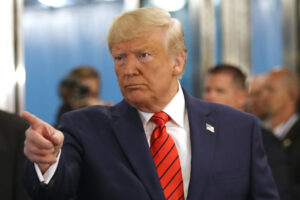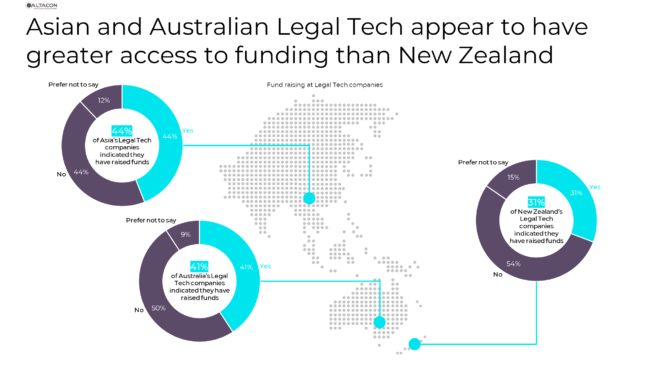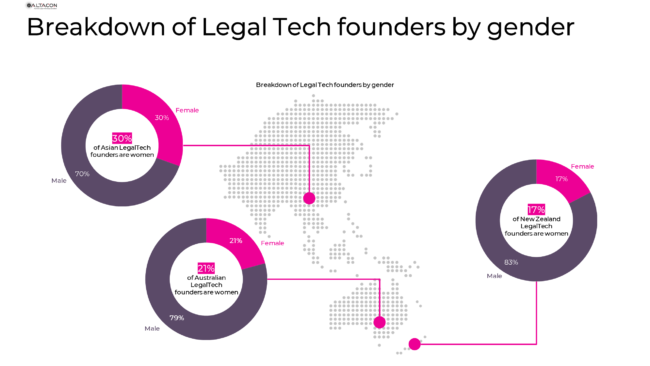Students across the country are petitioning for diploma privilege to become lawyers due to the pandemic, but if your state is unwilling to oblige and do away with the bar exam this summer or fall, then completing a preparation course sometime soon will be an important rite of passage for you, one which often involves hours upon hours of lectures over the course of several months paired with intense study from voluminous outlines. It’s exactly as boring as it sounds. What if there were a new way to study for the bar exam that added an element of — dare we say — fun?
I had the pleasure of speaking to Adam Balinski, the founder of Crushendo, a bar exam prep company that’s making a big splash in the industry. Here is a (lightly edited and condensed) write-up of our lively conversation about bar review and how he started and built a successful company from the ground up just a few years after graduating from law school in 2016.
Staci Zaretsky (SZ): Describe your journey. What made you decide to start this company?
Adam Balinski (AB): The genesis story for Crushendo is pretty huge. One way you can look at it is that it started more than 10 years ago when I was doing my undergrad work at BYU. Even then, I would record my notes or my outlines. I was listening to them in between classes as I was getting ready for finals, and I found it very useful.
It helped me graduate at the top of my class, so there was no way I wasn’t going to use the same strategy during law school. As it turns out, I very quickly found that I could not do law school the conventional way and be happy with myself. I found I could not have been sitting there all day, every day, with my head in my books or down on the computer — that it just was kind of a shriveling type of experience for me and my personality.
I thoroughly enjoyed classrooms and fun with my classmates, but then came the preparation time — which is the bulk of law school, as you know — and I wasn’t really into the outlining process.
I always wanted to use my time as wisely as possible and work smarter, not necessarily longer. I felt like a lot of outlines were far too long and didn’t lend themselves well to memorization. So I would really condense it down and try to trim away all the fat I possibly could, so I could just have this nice, distilled, hour-long audio outline.
I’ve always been obsessed with efficiency and creating new processes for addressing old problems.
Three years later, the commercialization of Crushendo came about was when I was studying for the bar exam. I had a buddy come up to me and he said, “Hey, I heard you made your own audio outlines for bar prep. Could I buy those from you?” And that’s when this bar preparation startup really started.

SZ: What do you think differentiates Crushendo from the rest of the competition?
AB: It’s our audio outlines that make the differece here. There are so many more things you can do with audio learning instead of constantly having your nose in a book. You can have fun and learn everything you need to know, all at the same time. You can play basketball, you can go for a run, you can go for a hike, you can go to the beach — and you can prep for the bar exam at the same time.
I wanted to create a commercial product that is so memorable and so engaging and so efficient that it’s better memorization wise than just then taking the time to create your own outline. I want Crushendo to be the very best it can be. My goal is to have this be the very best bar prep product, period, no questions asked, and the most affordable, which is a crazy goal.
Sometimes people ask and they’re concerned about the cost of Crushendo. They want to know, why is it so cheap? If it’s so affordable, it can’t be that good, right? They think to themselves, “I want to get the best for myself, so I’ll drop $3,000 because I don’t want to roll the dice on this this big exam.” But like I said, I’m obssessed with efficiency, so if there’s a cheaper or more affordable way for us to do something as a company, we’re going do it — and then we’re going to pass our savings on to our users.
SZ: Why do you think people will benefit from doing bar prep in this way if they’re not used to learning in this way? For example, say someone is a very visual learner. What would they gain from listening to audio lectures?
AB: Everything that we have in audio form, we have in written form as well, with cool illustrations. So, regardless of whether or not you’re into the audio approach, we have something for you. We feel like it’s very engaging as a form of learning. I do think that people who haven’t traditionally used audio should at least give it a try because the payoff is so great.
It’s a lot more efficient and a lot more memorable if you can take the leap of faith and can train your brain to engage with audio.
There are people that are going to be a lot more excited about our product than some other people. For example, the podcast listeners are going to be a lot more excited about this and it’s going to not be nearly the same size of a learning curve for them. We recognize we’re asking people to do something way differently than perhaps it’s been done in the past — and to do it at the very finish line can be intimidating, terrifying, and maybe even paralyzing — but it’s worth it. We also have a 30-day, no-questions-asked, money-back trial period for you to test it out (though if you’re like 98 percent of our users, you won’t change your mind).
If you don’t believe me, reach out to Crushendo and we’ll give you access to one of our subject outlines for free.
SZ: How far off do you think Crushendo is from being the very best bar prep company?
AB: I believe that we are already there, but we certainly haven’t convinced the world yet, and most of the world hasn’t even heard of Crescendo yet. So we still have plenty of work to do. And even if we think our stuff is already the best, we want to make it even better; we have ideas for how to improve it. We are continuously improving our product and trying to make it even more efficient and more memorable.
Crushendo is a living, breathing thing, and it’s growing we’re always evolving. The Crushendo that people are experiencing this year won’t necessarily be how it is a year from now, and we’re constantly striving to outperform ourselves in how efficient the process is. That’s my vision, my passion.
***
On behalf of everyone here at Above the Law, we’d like to congratulate Adam Balinski on creating the innovative bar review program that is Crushendo. If your goal is crushing the bar exam, then this may be the bar prep program for you.
(Disclosure: Crushendo is an Above the Law advertiser.)
 Staci Zaretsky is a senior editor at Above the Law, where she’s worked since 2011. She’d love to hear from you, so please feel free to email her with any tips, questions, comments, or critiques. You can follow her on Twitter or connect with her on LinkedIn.
Staci Zaretsky is a senior editor at Above the Law, where she’s worked since 2011. She’d love to hear from you, so please feel free to email her with any tips, questions, comments, or critiques. You can follow her on Twitter or connect with her on LinkedIn.

















